June 2013 Newsletter
In this issue we work through the complicated task of making an expenses claim for travel and conference costs, plus we note a welcome change in payroll tax for some employers announced in the recent South Australian state budget.
Employers note: from 1st July, the rate of compulsory superannuation contributions for employees increases to 9.25%.
In this edition...
-
Navigating your way through a travel expenses claim
-
SA State Budget 2013-14
-
Compulsory employer super contributions increase to 9.25% from 1st July 2013
Navigating your way through a travel expenses claim
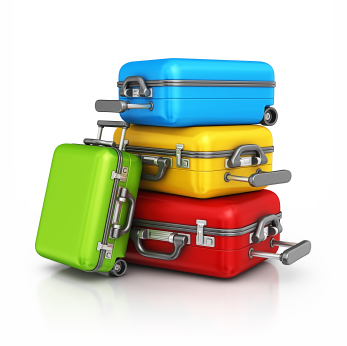 We're often asked about travel expenses and the extent to which they're deductible. The lines between 'business' and 'pleasure' can often blur a little, and of course if we know this, you can bet the Tax Office does too. This results in a convoluted set of rules intended to define certain aspects of the law very specifically and close perceived loopholes.
We're often asked about travel expenses and the extent to which they're deductible. The lines between 'business' and 'pleasure' can often blur a little, and of course if we know this, you can bet the Tax Office does too. This results in a convoluted set of rules intended to define certain aspects of the law very specifically and close perceived loopholes.
In actual fact, the real outcome is that they muddy the waters even further as we attempt to apply hyper-specific interpretations to each individual set of circumstances. If you're looking for an example of how government red tape makes business more difficult and saps productivity, we give you Exhibit A: our summary of the rules for travel expenses and conference fees.
The General principle
If you want an over-arching rule for claiming travel costs, it can probably be put like this:
All travel expenses and most associated costs are deductible to the extent they are incurred in the course of earning assessable income or in running a business.
However this is only to the extent that they are not for private purposes. So what happens if you attend a conference that is directly related to your income earning activities, but also take a side trip to a second destination for a quick getaway? Or what about if you decide to stay on longer to visit friends and family? What happens if your spouse accompanies you on your trip but is not connected in any way to your business activities? It's in these situations that things start to get a little murky.
It is further complicated by there being different rules for different sets of people. In some cases things will vary considerably depending on whether the costs are incurred:
-
By an employee;
-
By a person operating a business in their own name; or
-
By a person in business through a separate legal entity - like a company, for example.
The right answer will be different in every case based on the unique circumstances of each trip. Here are some examples of the more common travel expenses and how they can be claimed (if at all).
Airfares
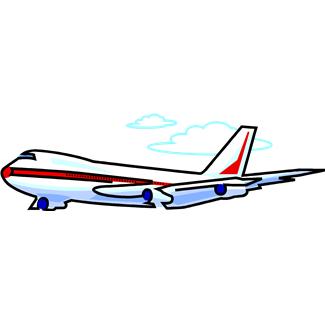 Airfares will be deductible in full where the dominant purpose of the travel is for work or business purposes. However the higher the proportion of non-business purpose, the greater the likelihood that the cost of the airfares will need to be apportioned.
Airfares will be deductible in full where the dominant purpose of the travel is for work or business purposes. However the higher the proportion of non-business purpose, the greater the likelihood that the cost of the airfares will need to be apportioned.
It's not so much about the amount of time spent on activities, but more how dominant the purpose is.
For example, let's say you're travelling to an overseas city for a conference. If you then decide to fly out for a few days to a more exotic location nearby for some rest and relaxation, the dominant purpose is still likely to be the conference. Naturally, you couldn't claim the additional cost of flying to the second location, but in terms of the initial overseas airline fare, it could be argued that had you not been going to the conference, you would not have gone to either destination.
On the other hand, let's say you are planning a trip overseas to visit family and friends for a few weeks. While you are there, you decide to drop in on a business contact. The dominant purpose of the trip in this case is clearly personal, since you were going anyway, and the act of simply adding a quick business stopover does not instantly transform it into a business trip. You may still be able to apportion costs in such cases, but it's unlikely that the airfare would be deductible in full.
There are of course numerous possibilities in between and either side of these examples, which is why each case needs to be considered on its own merit. The important questions to ask though are those along the lines of 'why are you going?' and 'would you have taken the trip for business reasons regardless?'
Accommodation
 Accommodation costs incurred in travelling for work or business purposes will be deductible, while any accommodation costs for private days will not be deductible.
Accommodation costs incurred in travelling for work or business purposes will be deductible, while any accommodation costs for private days will not be deductible.
There is some flexibility here of course. For example, if you have a private day at the end of a conference because you were not able to get a flight out the previous night, you will generally be able to claim an additional night of accommodation. The same might be the case where you fly in the day before.
Meals
 Where a meal allowance is not paid, meals will mostly be deductible provided there is no entertainment component.
Where a meal allowance is not paid, meals will mostly be deductible provided there is no entertainment component.
An employee can be paid a travel allowance for meals, and providing that allowance does not exceed the reasonable travel allowance amount for that person's circumstances, the allowance doesn't need to be declared by the individual, where it is fully expended, and neither are the expenses deductible. Effectively, the meal costs are not paid by the employee and therefore cannot be claimed as a deduction. The payment of the allowance is still deductible to the employer though. Any unspent allowance is supposed to be declared as income by the individual, however naturally, because no receipts are required for substantiation, employees tend to always expend the full allowance!
The 'reasonable' allowance limit is set by the Tax Office based on where a person is travelling, and is usually calculated on a per meal basis, i.e. an amount for breakfast, lunch and dinner for each day that these meals would be required while travelling.
Where no allowance is received by an employee, meals on business days will be deductible as long as the employee is away from home for at least one night and provided there is no entertainment component to the expense. A clear example of 'entertainment' while eating might be something like a theatre restaurant, but beyond that, what constitutes 'entertainment' over and above sustenance, and how the costs should therefore be apportioned, is anyone's guess!
If a business pays meal expenses for its employees while they are travelling, these will likewise be deductible to the business provided there is no entertainment component to the meal.
Conference/Seminar fees and costs
 Conference/Seminar fees and associated costs are deductible to employers, but limitations may be coming for costs paid by employees for themselves.
Conference/Seminar fees and associated costs are deductible to employers, but limitations may be coming for costs paid by employees for themselves.
Traditionally it has been the case that conference fees and associated expenses have been deductible to the extent that they are business related, whether they are paid by an employee or employer. This would include both the conference fees themselves, and also any costs for airfares, accommodation and so on (to the same extent that they would be deductible for other business purposes).
In the recent 2013-14 Federal Budget, however, a cap of $2,000 was proposed for self-education expenses. Self-education expenses have always been defined as being costs incurred by a taxpayer in gaining a formal qualification from a school, university or other place of education. But in a press release that accompanied the Budget announcement, it was suggested that the $2,000 cap would be extended to costs associated with conferences, seminars and self-organised study tours - which would include travel. It remains to be seen what will appear when/if this proposal is actually legislated, but this is cause for concern for those who pay their own costs for conferences and seminars.
This change will explicitly not apply where an employer pays these costs on behalf of an employee. These will continue to be deductible in full to the employer provided the employee does not salary sacrifice any of the costs.
It can be the case that there are optional dinners and other meals associated with a conference (say, a 'gala dinner-dance' on a Saturday night). The cost of attending these events will be tax deductible to an employer if the event is held on the same day as a conference that runs for at least 4 hours. This '4 hour' rule is the critical component - for anything less an apportionment of the meal cost is recommended, although precisely how you would go about calculating that is a bit tricky.
Naturally, activities that are strictly social in nature (say, an optional sightseeing tour) would not be deductible when paid separately, but this may become a little more grey if it is included in the overall costs of the conference, as it would be difficult to separate the specific value of any entertainment component.
Once again, these same rules have previously applied where the dinner cost would be paid for by an employee, but this may now be subject to change if the proposed change relating to self-education expenses is passed.
Transfers
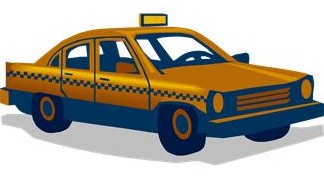 Hotel transfers are deductible to the same extent that travel costs are deductible.
Hotel transfers are deductible to the same extent that travel costs are deductible.
If the transport is shared with someone else unrelated to the business purpose, the costs will still be 100% deductible provided there is no additional expense incurred (which is usually the case for, say, a taxi fare).
Travel insurance, visas, passport fees
 The costs of travel insurance, visas and passports are generally not deductible for an employee, but may be deductible to an employer entity where paid on behalf of an employee.
The costs of travel insurance, visas and passports are generally not deductible for an employee, but may be deductible to an employer entity where paid on behalf of an employee.
Airline lounge membership
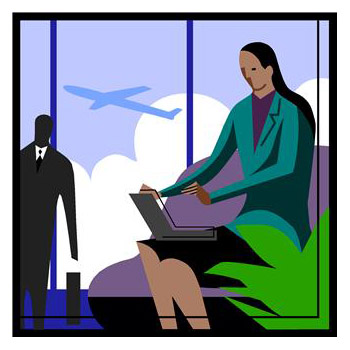 Airline lounge membership is usually not deductible to an employee but could be deductible to an employer where paid on behalf of an employee.
Airline lounge membership is usually not deductible to an employee but could be deductible to an employer where paid on behalf of an employee.
Obviously, the lesson for an employee with such expenses is that if there is a case for deductibility, it's best to make arrangements with your employer to have these paid on your behalf.
Accompanying spouse or other relative
 Any additional costs incurred where a spouse or other relative travels with you are not deductible.
Any additional costs incurred where a spouse or other relative travels with you are not deductible.
The Commissioner takes the default view that costs should be split 50:50 in all cases, but you can actually claim on a 'marginal cost' basis where you can demonstrate that it is justified. For example, say a single hotel room costs $280 a night and a double room costs $300. In that case you would be entitled to claim the full $280 cost of a single room. If there was no additional cost at all for your spouse, then you could claim 100% of the cost. The Tax Office will still apply a 50:50 split on long-term accommodation though.
Substantiation
 So what records do you need to keep to substantiate your travel costs? Generally speaking, written evidence must be obtained for all costs for employees.
So what records do you need to keep to substantiate your travel costs? Generally speaking, written evidence must be obtained for all costs for employees.
Where an employee is away from home for at least six consecutive nights, a travel diary or similar record must be kept showing the particulars of each business activity undertaken, including the nature of the activity, the day and approximate time it began, how long it lasted and where it took place. It's worth noting though that no documentation is required where the employee received a reasonable travel allowance (above) and doesn't claim a deduction for costs in excess of the allowance.
For employers, written evidence must be obtained for travel expenses where the travel involved spending at least one night away from home. The employee is still required to keep a travel diary and other records as above.
Conclusion
Needless to say, it's complicated! The general rule will see you right in most cases though - if the connection to your work is clear, the costs should be deductible. The proposed Budget measure to limit self-education expenses is a potential future pitfall, but until this is passed it's hard to say what impact this will have for employees - if any. You simply need to make sure you keep good records and of course, talk to us if you're unsure about anything.
SA State Budget 2013-14
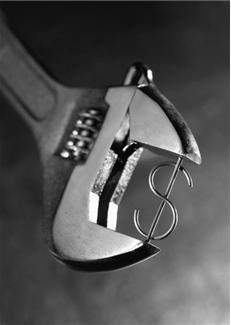 The South Australian State Budget was handed down on 6th June 2013.
The South Australian State Budget was handed down on 6th June 2013.
The most significant new tax measure for small-medium business was some welcome respite from Payroll Tax for the next two years, by way of a rebate payment for employers with payrolls under $1.2 million.
The rebate will be paid in respect of the 2012-13 and 2013-14 years, in the six months following. The effect is that employers with a taxable payroll of up to $1 million will have paid payroll tax at a rate of 2.5% rather that the statutory rate of 4.95% - almost half the amount of payroll tax over a period of 2 years. The rebate will phase out gradually for payrolls between $1 million and $1.2 million.
You can read more about this and other budget measures in Revenue SA Information Circular No. 56.
Compulsory employer super contributions increase to 9.25% from 1st July 2013
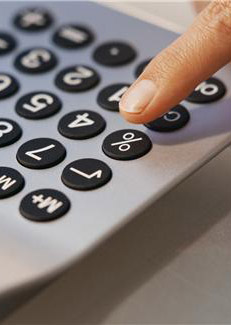 Just a reminder for employers that the compulsory superannuation rate for employees increases from 1st July 2013, from 9% to 9.25%.
Just a reminder for employers that the compulsory superannuation rate for employees increases from 1st July 2013, from 9% to 9.25%.
This is the first stage in the Government's plan to grow retirement savings through increased superannuation. The compulsory rate will increase gradually over the next few years until it reaches 12% by 1st July 2019.
You can find more details, including a table of the rates that will apply and when they take effect, at the Tax Office website.
In the meantime, please make sure you update your payroll and accounting systems to ensure that the new rate applies from 1st July.
 Download PDF Newsletter
Download PDF Newsletter